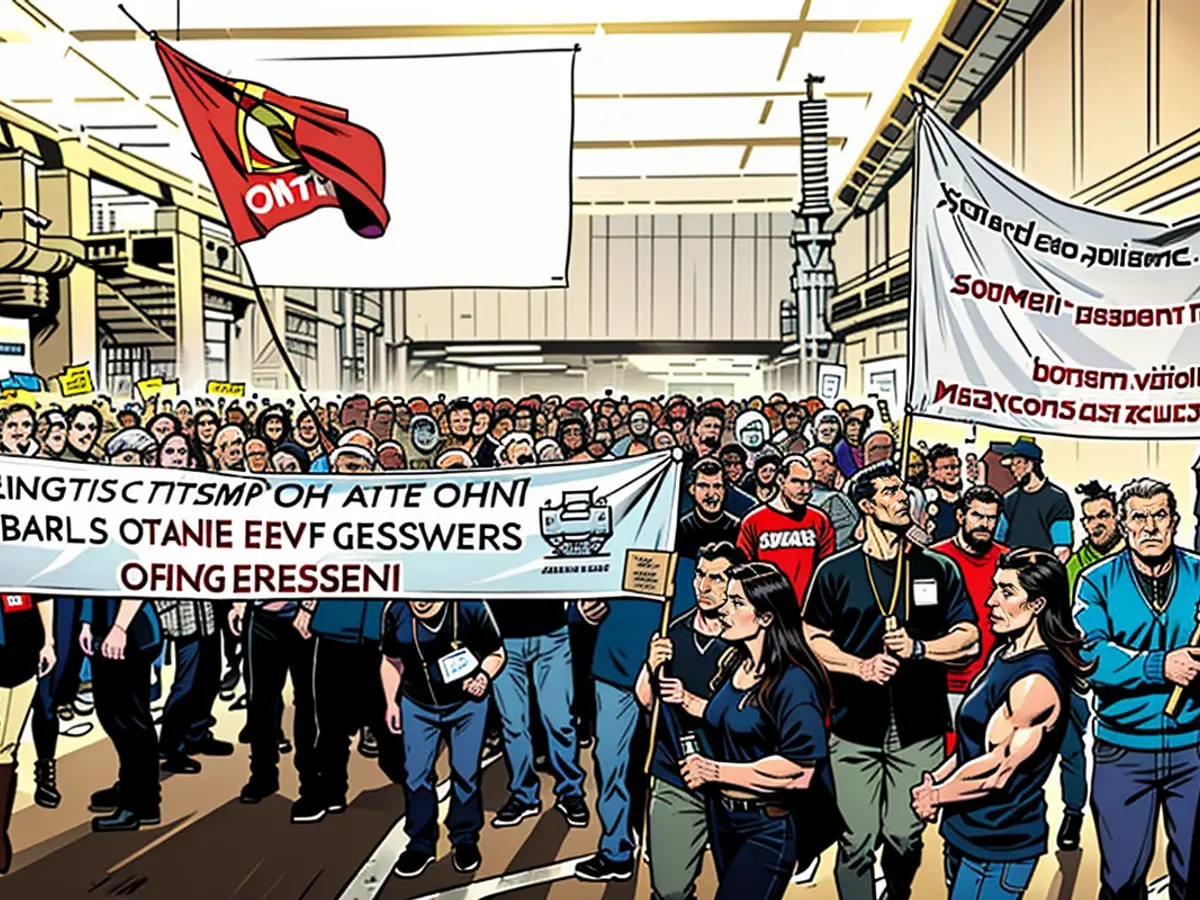Due to this, the prominent cost reductions are anticipated in Volkswagen's upper echelons.
** Due to a significant drop in demand for new cars and the need to secure funds for upcoming investments, the higher-ups at the car company have proposed some harsh cost-cutting measures. Even shutting down factories is an option they're considering. The chairwoman of the workers' council is determined to stand against this.**
The company's top brass defended their stringent cost-cutting plan during a meeting with employees at their Wolfsburg plant. "We've got about a year, maybe two, to turn things around," said the Chief Financial Officer, Arno Antlitz, speaking to over 10,000 employees. "We've been spending more than we're making on the brand, and that can't go on."
The company intends to use the savings to finance new products. "We need money now to invest heavily," said the brand's chief, Thomas Schäfer. "If we can manage to sustainably lower our costs and invest in a range of innovative models that neither the competition nor the customers have seen before, then we'll set ourselves up for the future."
Overproduction Issues
Antlitz pointed to overcapacity issues, highlighting that in Europe, around two million fewer cars are sold each year compared to pre-pandemic levels, and this trend is unlikely to change. For VW, with a market share of around a quarter in Europe, this translates to missing the sales of around 500,000 vehicles - the sales equivalent of two plants.
VW did not provide details on the potential locations that could be closed. The company had earlier stated that plant closures would be a last resort if alternative measures couldn't be taken quickly. VW operates vehicle plants in Wolfsburg, Emden, Osnabrück, Hannover, Zwickau, and Dresden, as well as component factories in Kassel, Salzgitter, Braunschweig, and Chemnitz.
Workers' Council: "That's Not Our Way"
The employees met the announcement with vocal opposition. The company did not offer any new information about their intensified savings plan during the works council event. Europe's largest automaker had announced that it would tighten its cost-cutting measures further in light of the worsening situation. This could also involve the closure of individual plants and layoffs.
The works council and IG Metall had already announced significant resistance. "Cutting costs, closing plants, laying off workers. That's not our way," said the chairwoman of the works council and group works council, Daniela Cavallo, and demanded a roadmap until 2035. In VW's past, issues like these had always been resolved differently. "Partnership, even in conflict! That's what we're saying goodbye to," Cavallo said, addressing the management. "Anyone who wants to break with our DNA will face the strong resistance of the workforce."
Cavallo emphasized the importance of VW plants for the cities they're located in. "It's about everything." VW is not in trouble due to German locations and high personnel costs. The company is in trouble because the board is not doing its job. "Anyone who always has their back against the wall doesn't get a team behind them. And one thing is clear: without this workforce, we won't get out of this crisis."
There will be no plant closures or premature layoffs with the works council in Germany. Instead, fundamental issues such as product and technology orientation, sustainable plant utilization, or technological leadership need to be addressed. "Technical development needs to be strengthened and take a leading role," said Cavallo. Furthermore, the battery system needs to be improved, and above all, leadership needs to be upgraded. "The coordination and decision-making processes between the group, brand, and Volkswagen AG are a complete mess," said Cavallo.
The cost-cutting measures proposed by the company's higher-ups include the possibility of shutting down factories, particularly those involved in the Manufacture of motor vehicles. In response to this, Daniela Cavallo, the chairwoman of the workers' council, stated that closing plants and laying off workers is not their way and demanded a roadmap until 2035.








